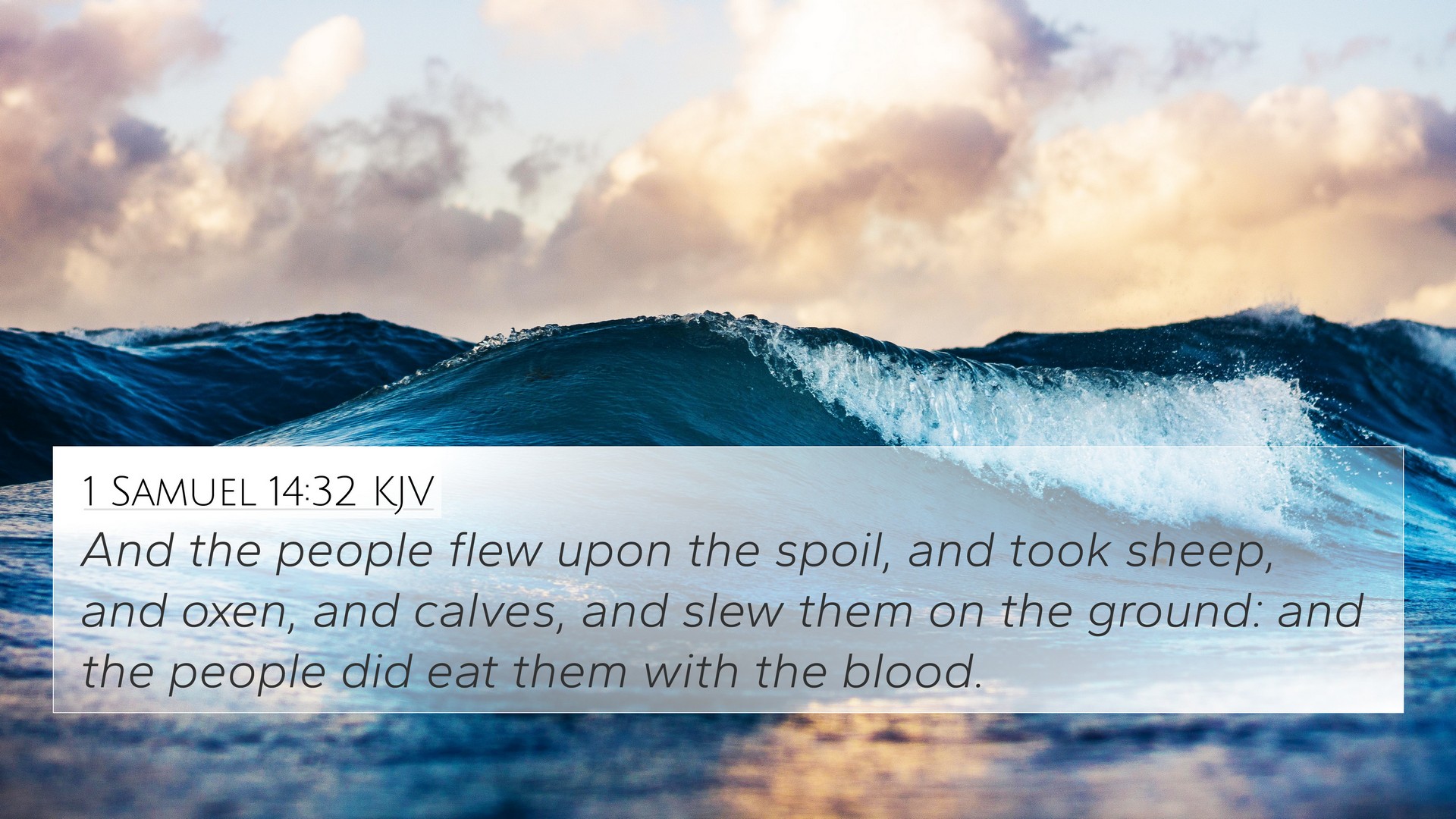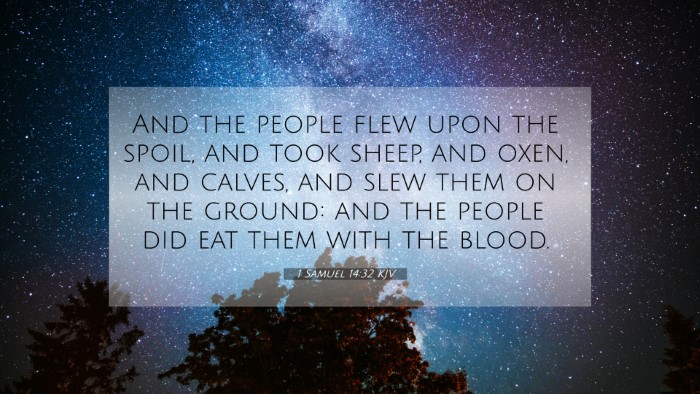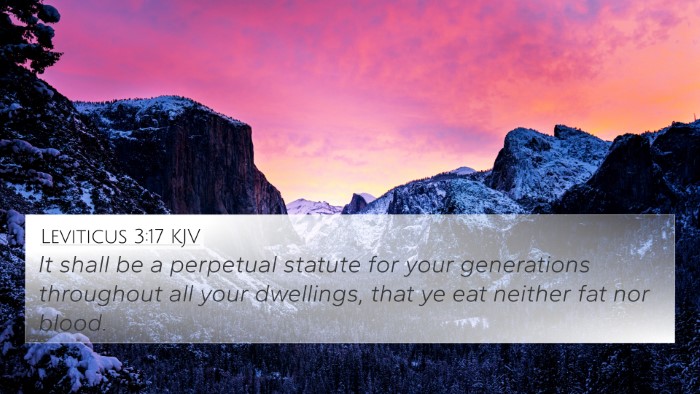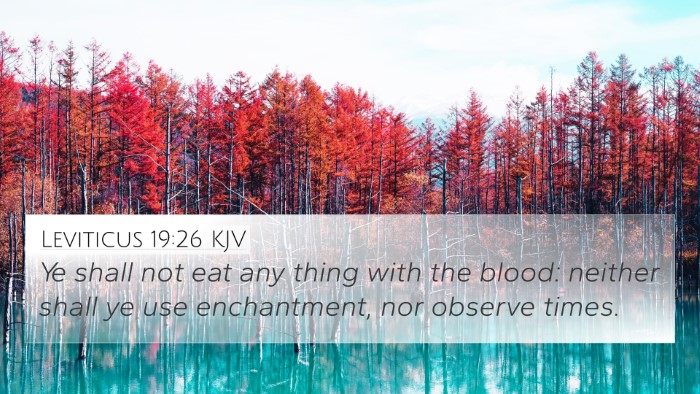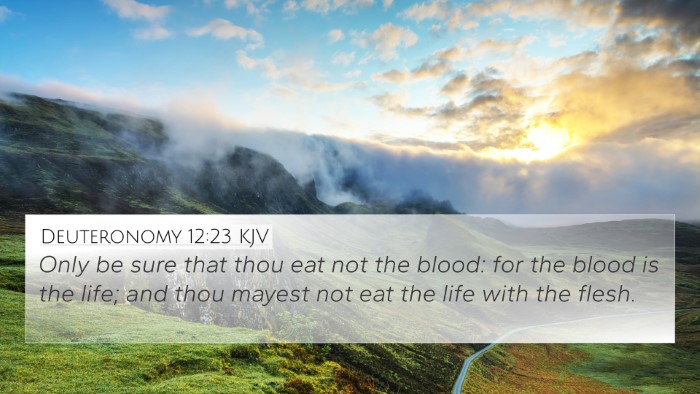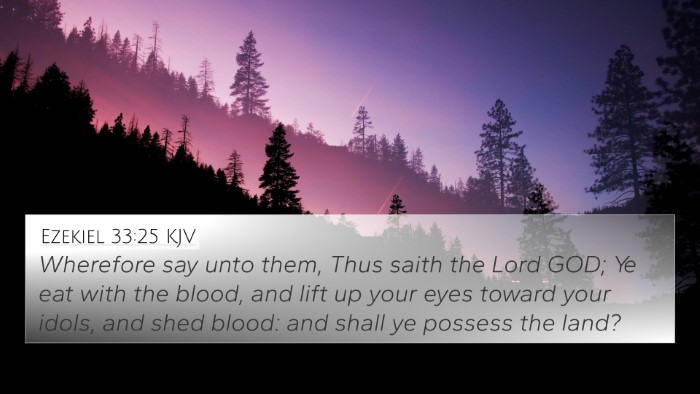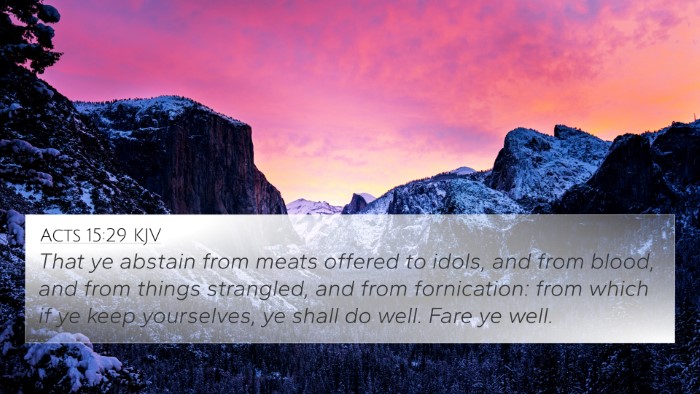Understanding 1 Samuel 14:32
Verse (1 Samuel 14:32): "And the people flew upon the spoil, and took sheep, and oxen, and calves, and slew them on the ground: and the people did eat them with the blood."
Summary of Interpretation
This verse depicts a moment of impulsive actions following a military encounter where the Israelite army, hungry and overtaken by a sense of victory, begins to consume the spoils of battle without proper preparation or care for the commandments regarding blood consumption.
Insights from Commentaries
-
Matthew Henry:
Henry emphasizes the dangers of hasty actions driven by human desires. He notes how the army's eagerness to feast led to disobedience against God's commands concerning dietary laws. This serves as a reminder of the importance of self-control and adherence to divine instruction, especially in moments of intense emotion.
-
Albert Barnes:
Barnes highlights the context of Israel’s laws regarding blood, explaining that this act not only disobeyed God’s earlier commands but also illustrated a critical lapse in spiritual discipline. He underscores how this incident reflects a broader theme of the Israelites often forsaking covenant responsibilities during times of stress or celebration.
-
Adam Clarke:
Clarke points out the consequences of this act, noting it as a violation of sacred regulations intended to maintain the community’s holiness. He reflects on the notion of how quickly the fervor of battle can lead to sinful actions, thus urging readers to reflect on their own responses during times of triumph and distress.
Cross-References
1 Samuel 14:32 connects with several key verses that illuminate its themes of obedience, dietary laws, and the relationship between divine command and human action. Here are some significant cross-references:
- Leviticus 17:10-14: Discusses the prohibition against consuming blood, providing the foundational law that is being violated in this scenario.
- Deuteronomy 12:16: Enforces the directive on not consuming the blood of animals, emphasizing the sacredness of blood in the covenant community.
- Genesis 9:4: Reveals God's original command regarding blood, highlighting its significance throughout Scripture.
- Matthew 15:11: Reflects on inner purity versus outer actions, paralleling the theme of how one's actions can reflect spiritual integrity.
- James 1:19-20: Advises on being quick to listen but slow to speak, urging caution in decisions made under emotional duress.
- 1 Corinthians 10:31: States that whatever you do should be done for the glory of God, reminding believers to consider divine expectations in all actions.
- Romans 14:21: Discusses the implications of actions on others, urging believers to act in ways that promote spiritual well-being.
Thematic Bible Verse Connections
The events in 1 Samuel 14:32 serve as a microcosm of broader biblical themes relating to:
- The importance of obedience: Throughout Scripture, particularly evident in the Pentateuch, God emphasizes the significance of following His commands (Deuteronomy 28:1-2).
- The danger of impulsivity: The New Testament warns against hasty decisions that may lead to sin (Galatians 5:22-23).
- The sanctity of life: The respect for life and blood ties back to biblical principles regulating offerings and sacrifices (Leviticus 1:5).
Applying the Lesson Today
In communal and personal worship, the caution against yielding to the flesh is an enduring message of this passage. As believers today examine their hearts, they are reminded:
- To seek understanding before acting impulsively: Reflection on God’s Word can guide the decision-making process.
- To value spiritual discipline: Personal devotions and community accountability can help maintain a godly lifestyle.
- To honor God in all actions: Aligning our desires with His will is crucial, especially in moral decisions.
Resources for Further Study
For those interested in digging deeper into Biblical cross-referencing, consider using:
-
Bible Concordance: A tool to find specific verses and their meanings.
-
Bible Cross-Reference Guide: Helps to identify connections between different scriptures and themes.
-
Cross-Referencing Bible Study Methods: Various approaches such as thematic studies, verse-by-verse analysis, and more.
